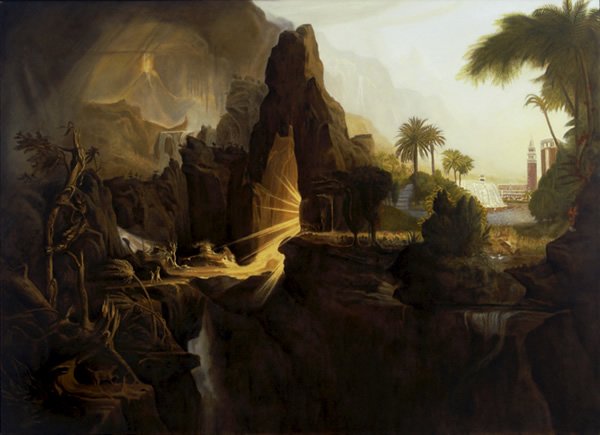In my last article, I summarized Raanan Eichler’s essay, in which he proposes a new reading of Genesis 3:24. Here, I offer a critique of his argument.
Eichler uncovers a fascinating textual tradition of Genesis 3:24, one attested by four targumim. God’s presence outside Eden is implied throughout the Torah, but this verse provides an explicit description of God’s exit from the Garden when He drove mankind out. This reading raises many new questions, some of which Eichler hints at in his concluding paragraph: How did man’s fall influence God to leave the Garden? Is the snake likewise banished from the Garden? Why is God Himself guarding the way to the tree of life? With both humanity and God outside the Garden, what has become of Eden?
At the same time, the reading resolves contextual questions and appears consistent with its literary and inner-biblical contexts. It offers a specific point at which God left Eden to dwell outside the Garden, in the midst of His human creations. It explains that the cherubim and “spinning-sword-flame” (as Eichler dubs it) do not stand alone but are merely part of God’s train; this falls in line with other biblical descriptions of cherubim in God’s presence (32, n. 28). From this perspective, Eichler certainly presents an attractive proposal. And if his reading were understood as more original than the masoretic take, the literary and theological consequences in this seminal biblical story would be far-reaching.
However, Eichler’s case is presented in only thirteen pages, and parts of his argument require further development before his conclusion can be taken as more than a fanciful suggestion. On the text-critical side, the origins and dating of the targumic texts are not well understood. As Martin McNamara noted, targumim bear a tel-like character: within their strata, both early and late traditions can be found. [1] This is especially true of later targumim, like Targum Pseudo-Jonathan. [2] Eichler writes, “Four Targumim, however, reflect an ancient, divergent vocalization of the verse’s fourth word”; but exactly how ancient is this vocalization?
Midrash sometimes reads a verse of the biblical text with a slight alteration to fit its narrative. Though targum is not midrash, it incorporates midrash into the translation. Targumim try to present a version of the Bible focused on specific interpretations, especially those that produce inner-biblical coherence. Thus, a later tradition seeking biblical coherence could posit that God settled between the cherubim in Genesis 3:24. The four targumim reflect a specific reading of the text, but not necessarily a divergent textual tradition. Until the targumim—their dates, origins, sources, Sitz im Leben, stratification, and methodologies—are better understood, Eichler’s reliance upon the targumic textual tradition can only lead to murky conclusions.
At the end of the day, Eichler’s suggestion remains an attractive one, but his argument stands on the shoulders of immature giants. There is much unanswered about targumic sources. Similarly, Geiger and Tov’s stances on masoretic theological bias against שכן in Qal with God as subject is one of Eichler’s crucial but uncertain premises. Hopefully, Eichler’s article will spur deeper studies to distinguish between midrash and biblical textual tradition in targumim. Eichler presents a concise word study on שכן, though without distinguishing historical linguistic styles. Whether or not the biblical author specifically narrates God’s exit from Eden, Eichler raises an important reminder that, after banishing Adam and Eve, God chose to settle on this side of the Garden wall.
[1] Martin McNamara, “The Targums: Tel-Like Character and a Continuum,” in Geoffrey Khan and Diana Lipton (eds.), Studies on the Text and Versions of the Hebrew Bible in Honour of Robert Gordon, (Brill, 2012).
[2] Wisely, Eichler does not give much heed to Targum Pseudo-Jonathan due to its midrashic turn.


Leave a Reply